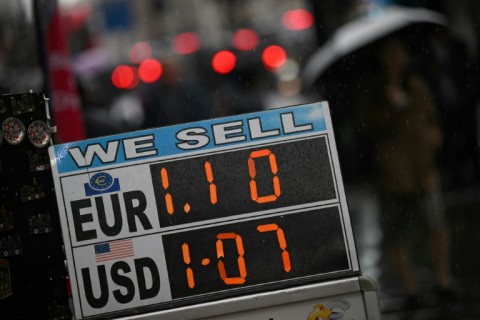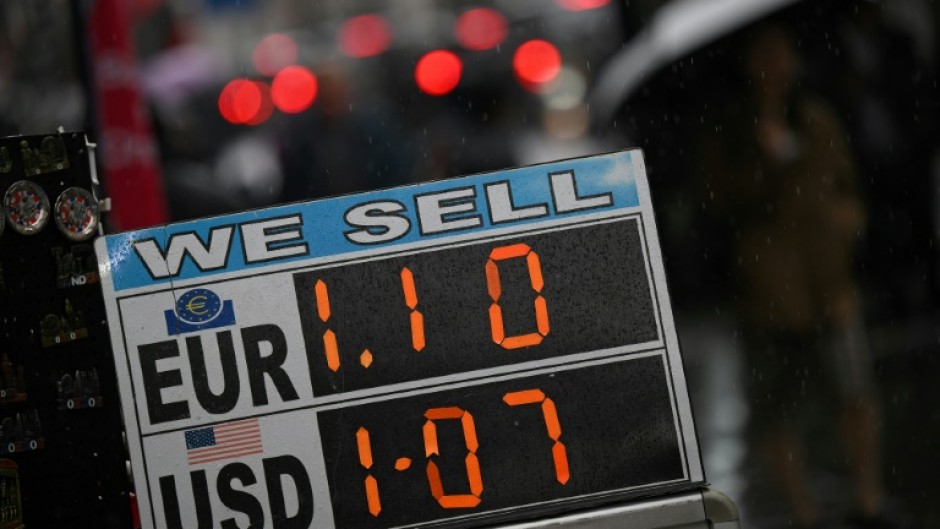
HONG KONG - Asian markets mostly fell Thursday after minutes from the Federal Reserve's most recent policy meeting showed officials foresaw a US recession at the end of the year, while inflation data could not temper expectations of another interest rate hike.
A smaller-than-forecast rise in prices last month provided some much-needed hope to investors that a year of monetary tightening was finally showing results, but analysts said the details showed there was still some way to go.
The five-percent rise in the March consumer price index was the lowest since May 2021 but core inflation, which excludes food and energy prices, accelerated to 5.6 percent from 5.5 percent the previous month.
The reading came after Friday's jobs report showed another healthy increase in recruitment and helped reinforce expectations the Fed will hike rates in May, for the tenth time in just over a year.
Traders await the release of wholesale inflation later in the day, and first-quarter earnings Friday from top banks including JPMorgan and Citibank.
Wall Street swung after the release but turned negative towards the end of the day after the Fed minutes, which highlighted concerns about the impact of last month's banking crisis, in which three US lenders went under and Credit Suisse was taken over.
"The staff's projection at the time of the March meeting included a mild recession starting later this year, with a recovery over the subsequent two years," according to the minutes of the Fed policy meeting, where rates were lifted by 25 basis points.
They also said "some additional policy firming may be appropriate" to help bring inflation down to the Fed's target of two percent.
In light of the banking turmoil, officials "commented that recent developments in the banking sector were likely to result in tighter credit conditions for households and businesses and to weigh on economic activity, hiring and inflation", but the extent of the effects was uncertain.
Edward Moya at OANDA said: "The initial stock market rally was rightfully faded as inflation is still too high and as rate cut bets are still aggressively getting priced in. Investors also might not necessarily want to aggressively pile into risky assets before the big banks kickoff earnings season."
Hong Kong was dragged by sharp losses in the tech sector after the Financial Times reported that Japan's SoftBank was looking to unload a majority of its holdings in Alibaba. The e-commerce giant fell more than five percent at one point, while rival JD.com was off around four percent.
There were also losses in Sydney, Shanghai, Taipei, Mumbai, Manila and Jakarta, though Tokyo, Singapore, Wellington and Seoul ticked slightly higher.
London dipped as data showed the UK economy unexpectedly stalled in February as the country was hit by widespread strikes and a cost-of-living crisis.
Paris and Frankfurt rose.
News that Chinese exports soared for the first time in six months, by a forecast-busting 14.8 percent, was unable to provide much lift to sentiment.
Oil prices inched lower, but held most of Wednesday's two-percent rally fuelled by a drop in US inventories and supply issues from Iraqi Kurdistan.
The two main contracts are now sitting around levels not seen since November, while traders are awaiting an outlook update from OPEC later in the day.

